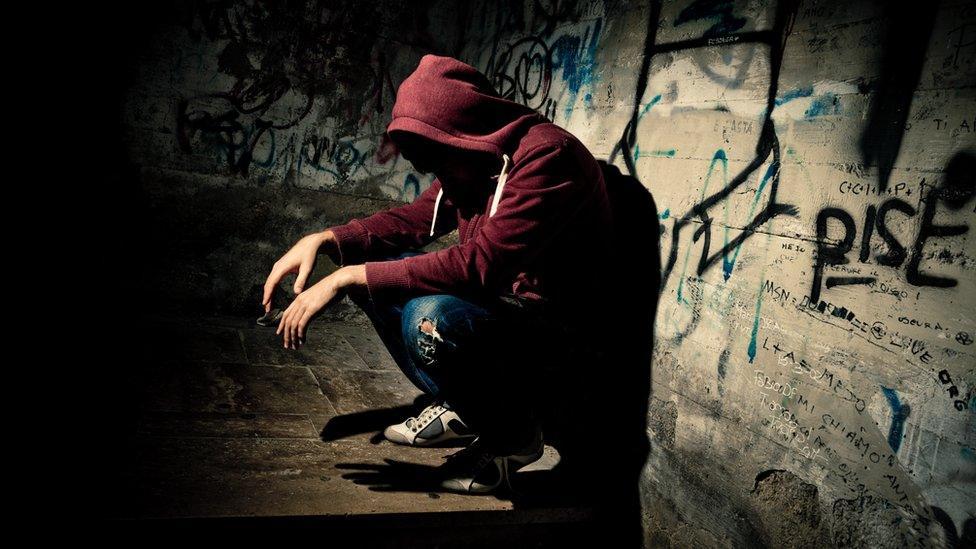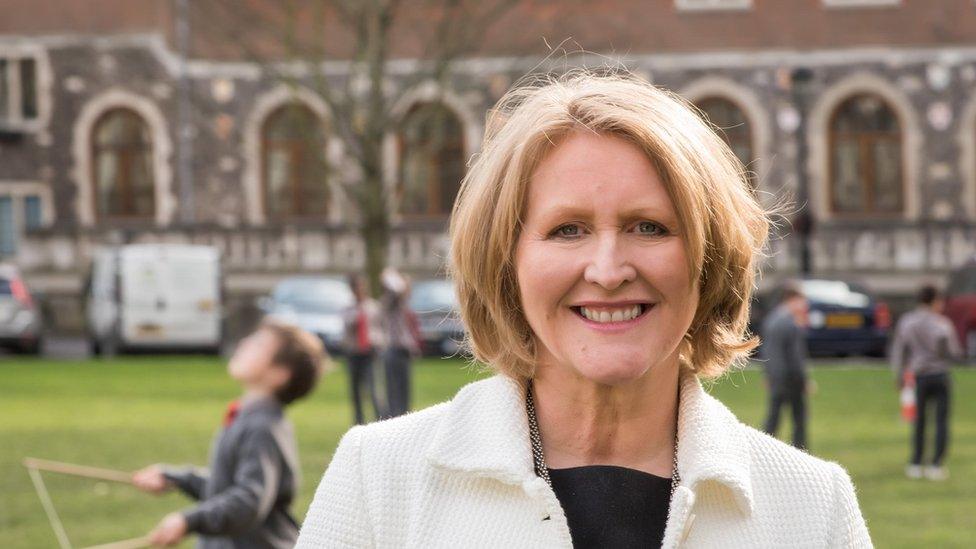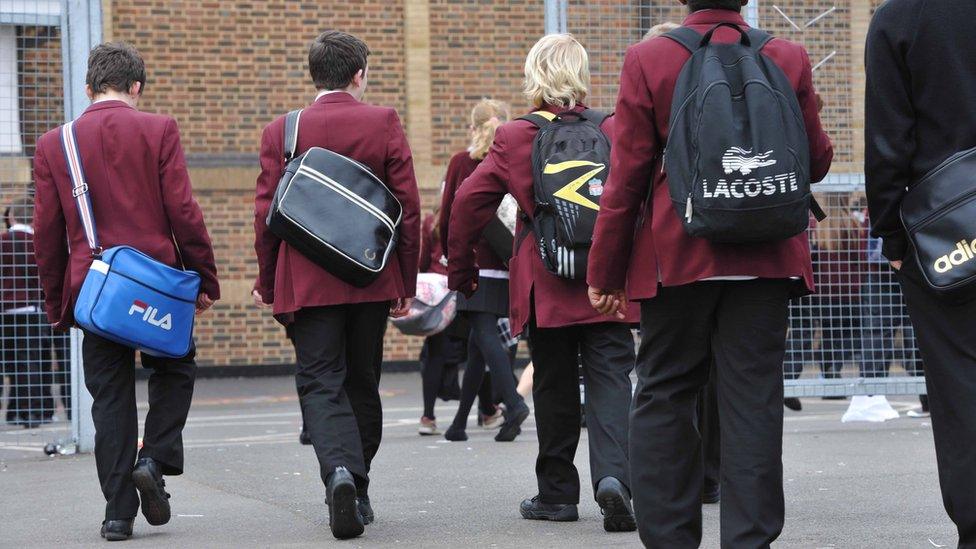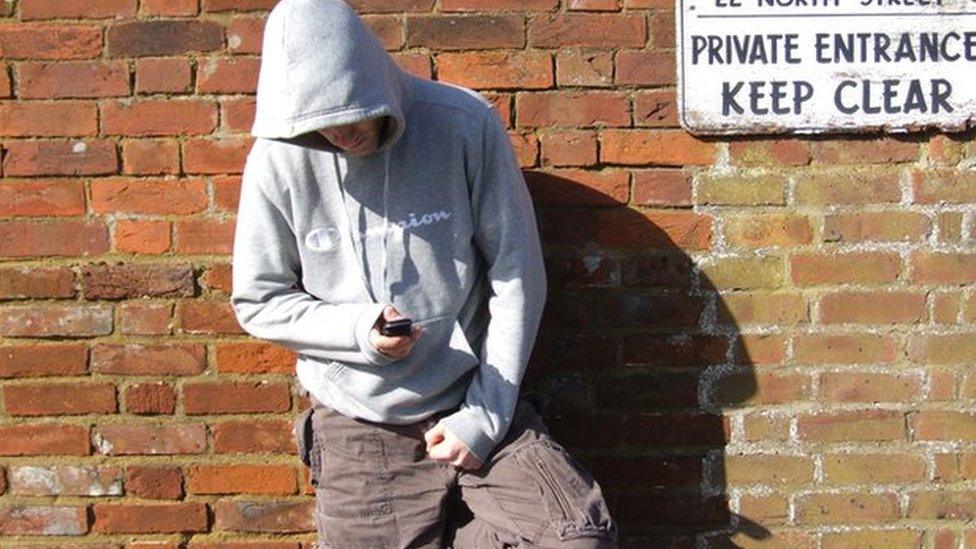'Teach pupils to avoid gangs' - children's commissioner
- Published

Pupils should be taught in school how to avoid being sucked into gangs or exploited by older criminals, the children's commissioner has said.
Anne Longfield said personal, social, health and economics education (PSHE) lessons should help children spot when they are being targeted by gangs.
It follows reports children are being used by criminals as "money mules".
She said children looking for "a sense of belonging, fast money" or "glamour" were at risk.
Ms Longfield's research has found 46,000 children in England are involved in gangs., external
Money laundering
Speaking to BBC Radio 5 Live's Sunday Breakfast programme, the children's commissioner said children as young as 10 were being recruited into gangs that could be "extremely violent, usually intimidatory and sexually abusive, particularly towards girls".
"These are horrific situations that young people are getting themselves into."
Simon Dukes, chief executive of the fraud prevention organisation Cifas, said some were being persuaded to hand over access to their bank accounts to criminals for money laundering purposes.
He said criminals lure children in with apparent money-making opportunities on social media, and pass money through their accounts to disguise the sources of illicit funds.
"Criminals, of course, prey on the most vulnerable and they're preying on younger people because of their lack of knowledge, in particular, about what is effectively money laundering."
Ms Longfield said other young people were being used to transport drugs.
"Anecdotally, I'm told that middle-class children are often being targeted as well because they are less likely to be stopped.
"Children who are easier to intimidate, vulnerable in some way and often being bullied, those that are easier to control, are being picked on."

Anne Longfield also said police forces need to keep better data on child involvement in gangs
Earlier this year, the government announced that PSHE would be made compulsory, external in all state schools.
The government is currently consulting on what to include in the permanent curriculum, but as yet, there is no timetable for its introduction.
Ms Longfield said the "life skills lessons" should include information on the risks of becoming involved in gangs, an understanding of how gangs target children and help in building resilience to resist them.
'Inconsistent'
Parents may not be aware of who their children are talking to via social media, so young people themselves need to be able to understand the difference between "genuine opportunities" and exploitative situations, she added.
"For younger children it will often be the draw of fast money - sometimes protection for themselves if they're fearful about their own wellbeing - but certainly also a sense of belonging, fast money, sometimes glamour...
"Life skills is something that the government has committed itself to do.
"Most schools at the moment do provide life skill lessons but they're often inconsistent and often they don't tackle some of these issues that are much harder to tackle."
The commissioner also called for police forces to work together to produce better data on the number of children targeted by gangs.
The PSHE Association, a national body working to improve PSHE education, said it supported the call for compulsory lessons to help young people understand "the specific risks of gang membership for individuals, families and communities".
A spokesman said a broad PSHE education "gives pupils the knowledge and skills to better understand peer influence, and helps them recognise and avoid exploitative relationships, online and offline".
- Published29 July 2017

- Published13 January 2016

- Published20 March 2017
